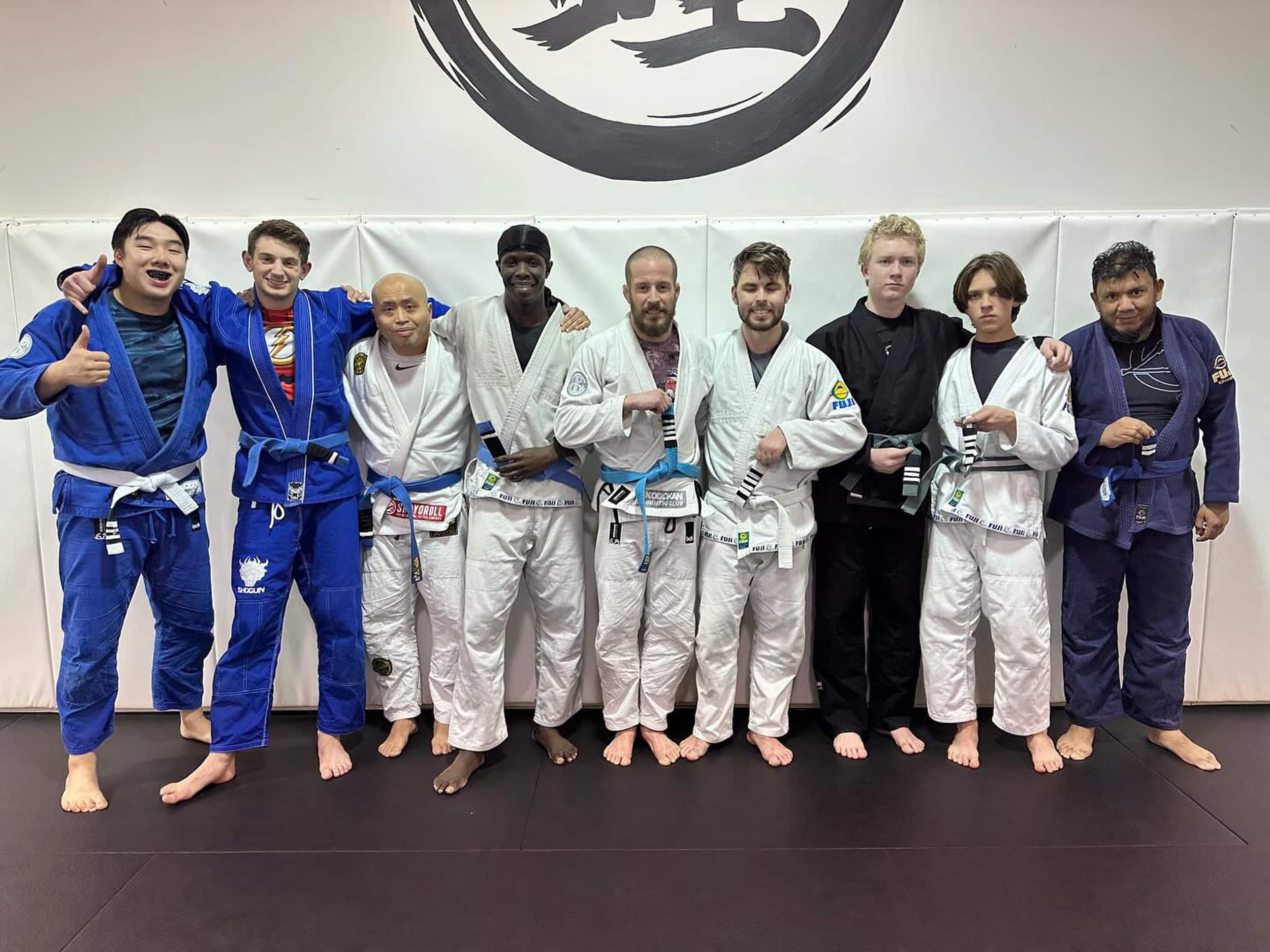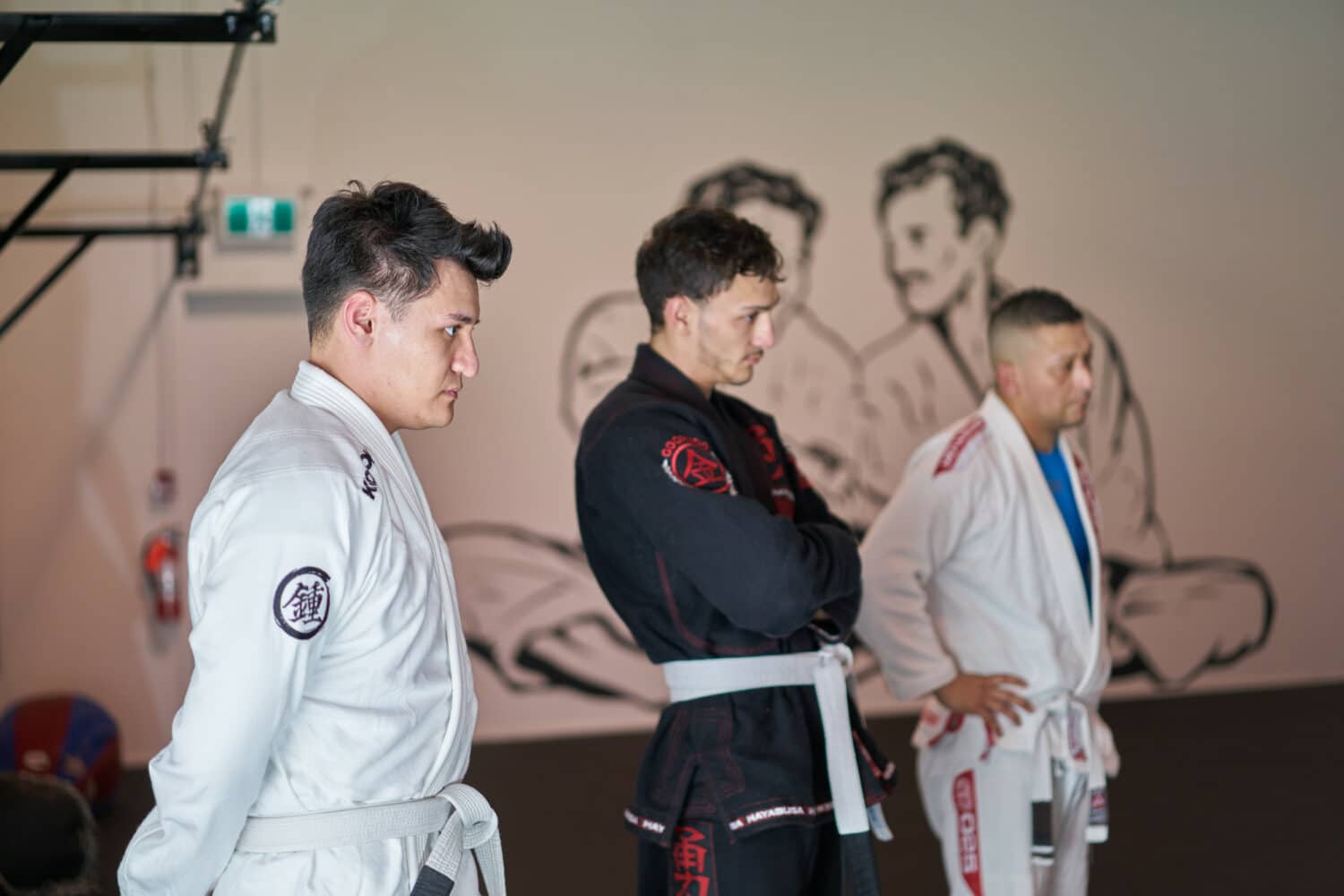Elements of Coaching
The Elements of Coaching Jiu-jitsu-A Student Perspective
While the Jiu-jitsu student/coaching relationship seems straightforward (payment for instruction), the reality is coaching Jiu-jitsu is a complex and personal thing. Accordingly, there are some hidden aspects to coaching Jiu-jitsu that are important but not obvious. Part of this is on purpose, a good coach wants your priority to be your training and development, and not for you to worry about other things.
On the other hand, a proper understanding of the elements of coaching Jiu-jitsu can positively impact a Jiu-jitsu student. By better understanding what coaching Jiu-jitsu means, a student can develop a greater respect and appreciation for his teacher and also a better understanding of his own role and responsibilities. To that end, below are five elements of coaching Jiu-jitsu that can help Jiu-jitsu players develop a better understanding of the overall Jiu-jitsu journey:
1. Your coach has traveled a path before you
When it comes to teaching, the value of experience is hard to underestimate. Everything that affects you as a person affects your capacity to learn. In addition to your specific coach and your own ability, factors such as who trains at your gym, your mood, diet, rest, and attitude will all play a vital role in your overall Jiu-jitsu development. Importantly these different factors are always interacting, so you are never the exact same Jiu-jitsu player when you step on the mats from one day to the next.
Some athletes learn by verbal instruction, some learn by visual instruction, and some only learn by actually physically trying a technique. A coach’s job is to teach a technique or concept as many times as it takes and in such a way that individual students can absorb, retain, and be able to implement that knowledge. This is not an easy task given the different learning styles of different students, the different stages of different students, and numerous other factors which are always in flux.
While your coach has not walked the exact path you are traveling, he or she likely has dealt with many of the Jiu-jitsu issues you are facing, whether it is frustration, stagnation, injury, or dojo politics. Your coach not only has suggestions and advice for overcoming your challenges, but most importantly he or she knows where you are coming from, and can empathize with you. Finally, your coach is a living and breathing example that it is possible to overcome challenges and reach a high level of Jiu-jitsu.
2. Your coach can see things you cannot see
One of the hardest things in life is to see ourselves as we really are. In Jiu-jitsu too we are constantly trying to gain greater insight into our abilities, habits, strengths, and weaknesses as fighters so we can improve. One of a coach’s important jobs is to be able to objectively observe and evaluate our Jiu-jitsu, and to also be able to offer suggestions and a plan for improvement.
Your coach is often choosing to observe you or other students in his or her dojo instead of working on his or her own fighting skills. Observation and analysis are applied to all the other students as well. Through constant and consistent use, the observation and assessment skills of a coach are multiplied many times, and eventually form a type of mental database of Jiu-jitsu knowledge that allows a coach to offer useful analysis and advice.
Your Jiu-jitsu coach is in a unique position to be able to provide an objective assessment and judgement of where your Jiu-jitsu is at relative to other students, past and present. When it comes to Jiu-jitsu it is impossible to take a “one size fits all approach” because what works for one student might not work for another. Your coach can give you advice that is specific to who you are and your own stage and progress on the Jiu-jitsu journey. This is an important reason why you should trust the advice your coach gives you regarding how your techniques and overall game can be improved.
3. Your coach cares about and believes in you
No Jiu-jitsu coach decided to open a dojo in order to be rich. While every Jiu-jitsu coach has a slightly different story to tell about how they became a Jiu-jitsu coach. The three things that all Jiu-jitsu coaches have in common are that:
1) They love Jiu-jitsu.
2) Jiu-jitsu played an important role in their life.
3) They want to share their love and the transformative power of Jiu-jitsu with others.
When considering the role of your Jiu-jitsu coach. Think about the fact that your coach not only traveled a hard road on their way to a higher belt. But also decided to take the risk of opening a Jiu-jitsu school in order to help you travel on your own Jiu-jitsu journey. Your Jiu-jitsu coach maybe gave up a safe career. Or a more quiet and calm life in order to help you achieve your goals as a martial artist.
This is all to say that your coach is serious about Jiu-jitsu and about your Jiu-jitsu journey. Someone believed in their Jiu-jitsu journey, and helped your coach reach and perhaps surpass their martial arts goals. Now they want to pass that care and belief onto you. Many times before we can care about ourselves and believe in ourselves we need someone who will believe in us. For almost all Jiu-jitsu players this person will be their Jiu-jitsu coach.
4. No coach, no jitz
Everything from keeping the lights on, to keeping the mats clean, ensuring the rent is paid. And making sure that the there are enough coaches to teach every class, are details that add up. On top of all of this we must also consider that there are other important things that are not obvious but which also require work. Everything from designing a logo, a uniform, website, or business card. To even choosing the location and building the school, all these things are carefully considered by your coach and take a lot of time and energy.
Countless hours have been invested by your coach to create a good learning environment for you and your training partners. On top of this sometimes your coach has to deal with personalities. Such as gym bullies, people giving up, or people feeling entitled and asking to be promoted. If you think your coach has an easy job, you are mistaken. Your coach is taking on a complex and challenging mission. In helping others become better martial artists and better humans. Your coach therefore deserves your respect. Not just as someone who has devoted themselves to Jiu-jitsu. But as someone who has taken on additional responsibilities and made sacrifices. In order to be able to share their passion for Jiu-jitsu with you.
5. There is no “I” in dojo
As much as a student relies on a coach for great instruction and a positive and safe learning environment. Your coach also relies on you to train consistently. Treat yourself and your teammates with care and respect, and to work consistently to become the best version of yourself you can be. By opening a Jiu-jitsu school your coach has taken on not only a great responsibility but also a great mission based on faith. It would impossible to coach Jiu-jitsu well without a coach devoting himself to something greater than his or her own personal ambition.
In the end a coach has made it one of his goals to help you achieve your own goals as a martial artist. Achieving individual goals is already a large personal responsibility. Helping a dojoful of grapplers achieve theirs is putting a lot on one individual plate. It is fine to have individual goals. But as you travel further on your Jiu-jitsu journey you may, like your coach, begin to think about not only what Jiu-jitsu can do for you. But what you can do for Jiu-jitsu.
The currency which makes this all possible is respect but also trust. Just as your coach had to trust his coach to help him on his journey. Your coach seeks your trust in order to be able to guide you on yours. Trust is not cheap currency, but a good coach leads by example. To be deserving of your trust and respect through the efforts put in daily to be the best they can be.
Elements of Coaching Conclusion:
In Jiu-jitsu as in life the mind can be our greatest ally or the greatest enemy. So often we get stuck in negative thought patterns after a training session. Thinking of how we got caught in a submission or had to tap out. We cannot spend all our time thinking about what it would be like to be a Jiu-jitsu coach. But stepping outside our personal perspectives from time to time. Even if only for a few minutes can help us gain a greater understanding and appreciation of our situation. And better direct us to how we should be approaching our Jiu-jitsu journey.
The reality is our coach has probably gone through all our personal Jiu-jitsu struggles. And faces many we are not even aware of. If we are ever feeling down about our personal journey. Thinking about the elements of coaching Jiu-jitsu listed above can add some positive motivation and inspiration to keep us humble, focused, and grateful.
Elements of Coaching Takeaway: This Jiu-jitsu journey is long and arduous, but also worth it. Thankfully we are not alone and have coaches who have walked a path before us. Having traveled far, instead of taking a rest our coaches have doubled back and now walk beside us. We should always keep this in mind as we travel on our Jiu-jitsu journey.
May you travel well, travel far, and keep on rolling.

